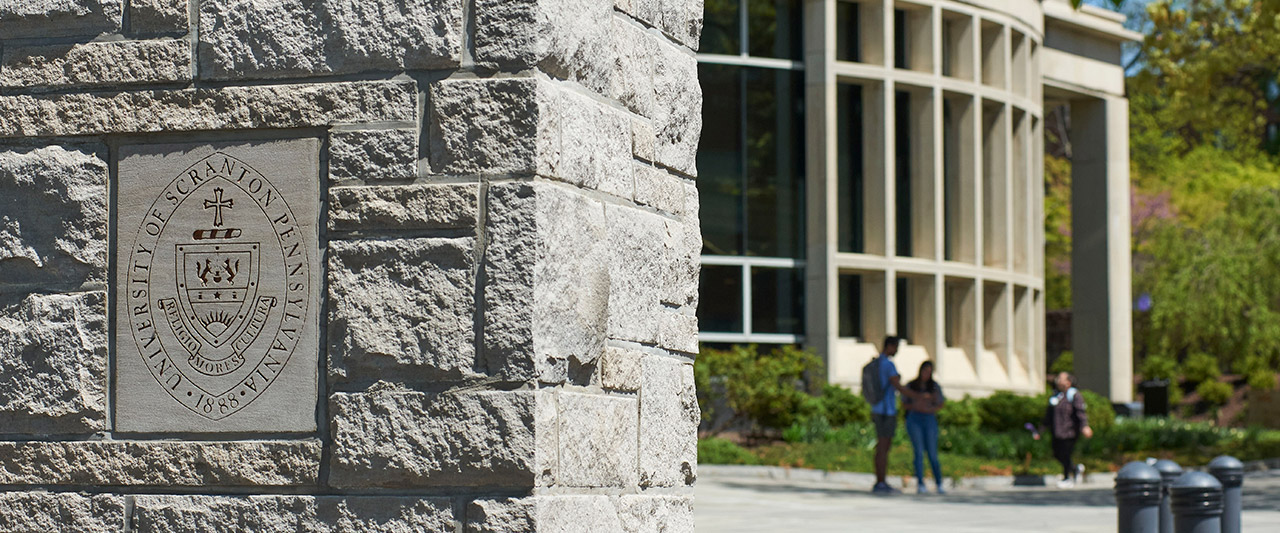Political Science
What We Do:
Politics matters to every person in every community. The decisions made by government officials affect all of us on a daily basis — from the amount of money we pay in taxes to the quality of education we receive to the safety of the food we eat and the water we drink. Political science explores how governments are structured and how they resolve social conflicts and provide for the public good. Political science also explores the roles that people can play in their governments and the actions people take to influence public policy to serve them and their communities.
Women and men concerned about the quality of their lives, as well as the quality of life in their communities and the world, need to understand how governments function and how to engage effectively in politics. Political science provides the foundational knowledge and skills needed to ensure that government is by and for the people. With its mix of theoretical and empirical approaches to studying politics, political science prepares women and men for fulfilling careers, life-long learning, and active and effective citizenship.
How We Stand Out:
- Teaching rooted in Jesuit values like cura personalis and Magis inspires students to take action, improving themselves and the world around them.
- From legal professions to the House of Representatives to non-governmental organizations, Political Science graduates have a broad range of successful outcomes.
- Real-world experience through internships and faculty-mentored research prepares students for success in the competitive job market.
- Strong foundations in reading, writing and verbal communication to prepare students to be discerning, responsible, and effective members of their local, national, and global communities.
- Typically, 90-95% of our students who apply to law school are successful in gaining admission, compared to a nationwide success rate of about 75%.
Programs:
The Political Science Department offers students the opportunity to major or minor in Political Science. The Department also offers a major in Public Policy and Service.
In addition, Political Science Department courses are integral to the University’s International Studies major and minor. Moreover, the Political Science faculty members encourage all students, no matter their major, to enroll in a political science course or two so that they will gain the knowledge and skills to influence their governments.
Meet Our Faculty:
In the Political Science Department at The University of Scranton, you’ll find faculty and staff members who are passionate about politics, government and law. Professors teach from experience, providing a balanced education grounded in research and interest. We are committed to the education and formation of students in order that they may become men and women of faith and of service to their communities.
Just a few examples:
- Dr. Jean Harris is the co-author of one of the country’s best-selling American government textbooks, "American Democracy Now."
- Dr. Michael Allison received the University's Alpha Sigma Nu Teacher of the Year award in 2019, frequently contributes political analysis on Latin America to local, national, and international media outlets and immigration courts, is also co-author of U.S. and Latin American Relations (3rd edition).
- Dr. Gretchen Van Dyke takes students to Washington, D.C. each fall to compete in an intercollegiate simulation of the European Union (EU). (Read more here.)
- Dr. JoyAnna Hopper is the author of Environmental Agencies in the United States: The Enduring Power of Organizational Design and State Politics and Director of the Center for Ethics and Excellence in Public Service.
Inside the Classroom:
- Focus on research, leadership and civic engagement to make a difference.
- Emphasis on written, verbal and interpersonal communication skills.
- Discover meaning, question purpose and articulate opinions in debates.
- Learn to thrive in teams and build consensus.
Student Research:
Get to know your professors on a one-on-one basis through faculty-mentored research opportunities. Dr. Michael Allison coordinates our Faculty and Student Research Program (FSRP) and Dr. Jean Harris leads the charge for our Student / Faculty Teaching Mentorship Program (SFTMP).
Career Outcomes:
You’ll find Scranton graduates with a Political Science degree working in fields such as:
- Government
- Law
- Sales & Marketing
- Higher Education
- Transport & Logistics
- Human Resources
- Strategic Communications
- Public Administration
- Military Intelligence
- Public Relations
- Journalism
- Business
- Research
- Non-profit Administration
Political Science Department
Undergraduate Admissions
Contact Us:
- Dr. Michael Allison, Chair
- Political Science Department
- O'Hara Hall
- Scranton, PA 18510
- The University of Scranton
- Phone: 570.941.4392
- Fax: 570.941.6485
- michael.allison@scranton.edu
Student Profiles
Jahmir I. Hertzog '26: Investing in Opportunities

Jackson X. Morris '27: The Importance of Political Dialogue

Emily Carey '26: Why She Chose Scranton's Public Policy Program
Bailey Cornish '26: Her Political Science Journey at Scranton

Related Links
Political Science Alumni on LinkedIn
Today's News








